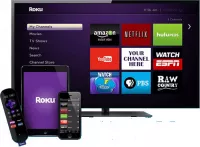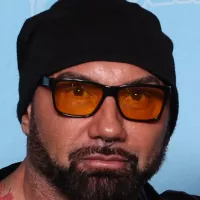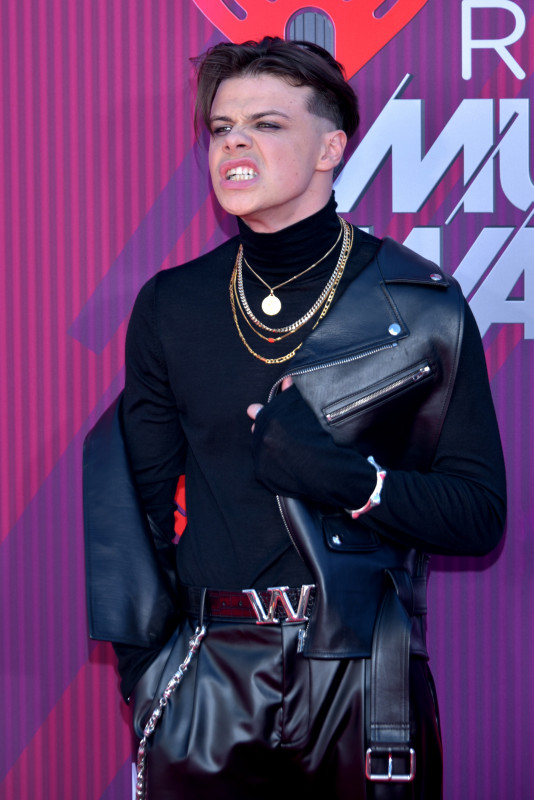Avatar: The Last Airbender follows Aang, the last of the Air Nomads and the current Avatar, destined to master all four elements (water, earth, fire, air) to restore balance to the world. He is joined by Katara, a waterbender, and her brother Sokka. They travel the world, evading the Fire Nation, led by the tyrannical Fire Lord Ozai, which seeks world domination. Aang must master the elements and defeat Ozai to bring peace. Throughout their journey, they gain allies, face personal challenges, and learn valuable lessons about friendship, duty, and sacrifice, culminating in a final showdown that decides the fate of the world.
1995: Creators Meet
In 1995, Michael Dante DiMartino and Bryan Konietzko, the co-creators and producers of Avatar: The Last Airbender, met at a Halloween party.
1996: Move to Los Angeles
In 1996, Michael Dante DiMartino moved to Los Angeles to pursue a career in the animation industry.
1998: Konietzko Moves to Los Angeles
In 1998, Bryan Konietzko moved to Los Angeles to pursue a career in the animation industry.
January 2002: Konietzko Resolves to Get Idea Made
In January 2002, after Invader Zim was canceled, Bryan Konietzko resolved to get their idea made at all cost.
2003: Pilot Episode Made
In 2003, a pilot episode for Avatar: The Last Airbender was made, animated by Tin House, Inc., written by Michael Dante DiMartino and Bryan Konietzko, and directed by Dave Filoni.
2004: Teaser Reel at Comic-Con
In 2004, the Avatar: The Last Airbender series was introduced to the public in a teaser reel at Comic-Con.
February 2005: Avatar Series Premiere
In February 2005, Avatar: The Last Airbender premiered on Nickelodeon.
February 21, 2005: First Episode Airs
On February 21, 2005, the first episode of Avatar: The Last Airbender, an hour-long premiere, aired on Nickelodeon.
September 15, 2006: The Secret of the Fire Nation Airs
On September 15, 2006, a one-hour special of Avatar: The Last Airbender, "The Secret of the Fire Nation", aired and attracted 4.1 million viewers.
October 10, 2006: Avatar: The Last Airbender Video Game Release
On October 10, 2006, the Avatar: The Last Airbender video game was released.
July 2007: Highest Ratings of the Series
During the week of July 2007, the four-part series finale, "Sozin's Comet", had the highest ratings of the series and was the most-viewed program by the under-14 demographic.
October 16, 2007: Avatar: The Last Airbender – The Burning Earth Release
On October 16, 2007, Avatar: The Last Airbender – The Burning Earth video game was released.
2007: Syndication and Ratings Success
In 2007, Avatar: The Last Airbender was syndicated to more than 105 countries and was one of Nickelodeon's top-rated programs.
July 2008: Avatar Series Finale
In July 2008, Avatar: The Last Airbender aired its series finale on Nickelodeon, concluding its three-season run.
July 19, 2008: Series Concludes
On July 19, 2008, the series concluded with a two-hour television movie broadcast.
September 15, 2008: Avatar: Legends of the Arena Release
On September 15, 2008, Nickelodeon released Avatar: Legends of the Arena, a massively multiplayer online role-playing game (MMORPG) for Microsoft Windows.
October 13, 2008: Avatar: The Last Airbender – Into the Inferno Release
On October 13, 2008, Avatar: The Last Airbender – Into the Inferno video game was released.
June 2, 2010: Art Book Published
On June 2, 2010, Dark Horse Comics published an art book titled Avatar: The Last Airbender – The Art of the Animated Series.
June 14, 2010: Unaired Pilot Released on iTunes
On June 14, 2010, the unaired pilot episode of Avatar: The Last Airbender was made available with and without commentary for the first time via the iTunes Store.
2010: The Last Airbender Film Release
In 2010, the live-action film The Last Airbender, based on the first season of Avatar: The Last Airbender, was released but was universally panned.
June 15, 2011: Avatar: The Last Airbender – The Lost Adventures Release
On June 15, 2011, Dark Horse published Avatar: The Last Airbender – The Lost Adventures, a collection of previously published and new comic book short stories from Nickelodeon Magazine.
April 14, 2012: The Legend of Korra Premieres
On April 14, 2012, The Legend of Korra, a sequel series to Avatar: The Last Airbender, premiered on Nickelodeon.
2012: The Promise Release
In 2012, Avatar: The Last Airbender – The Promise was published in three volumes, exploring the fate of the Fire Nation colonies.
2013: TV Guide Top Cartoon
In 2013, TV Guide included Avatar: The Last Airbender among the 60 greatest cartoons of all-time list.
December 19, 2014: The Legend of Korra Series Finale
On December 19, 2014, The Legend of Korra concluded after 52 episodes.
2016: The Promise Hebrew Translation
In 2016, the graphic novel series Avatar: The Last Airbender – The Promise began being translated into Hebrew.
2017: The Promise Hebrew Translation
In 2017, the graphic novel series Avatar: The Last Airbender – The Promise Hebrew Translation continued.
June 2018: Complete Series Blu-ray Release
In June 2018, the complete Avatar: The Last Airbender series was released on Blu-ray in honor of the tenth anniversary of its finale.
September 2018: Netflix Live-Action Remake Announced
In September 2018, Netflix announced that a "reimagined" live-action remake of Avatar: The Last Airbender was to start production in 2019.
October 2018: Imbalance Release
In October 2018, the graphic novel Avatar: The Last Airbender – Imbalance was released, exploring the conflict between benders and non-benders.
2018: Vanity Fair Ranking
In 2018, Vanity Fair ranked Avatar: The Last Airbender as the 11th-best animated TV show.
July 2019: The Rise of Kyoshi Release
In July 2019, Avatar: The Last Airbender – The Rise of Kyoshi, the first book in the Chronicles of the Avatar series, was published by Abrams Children's Books.
2019: Live-Action Remake Production Planned
In 2019, production was to start on a "reimagined" live-action remake of Avatar: The Last Airbender.
February 2020: Netflix Top Series List Debut
In February 2020, Netflix debuted its list of top series.
May 15, 2020: Netflix Release and Popularity Surge
On May 15, 2020, Avatar: The Last Airbender was added to Netflix and reached the number-one position on the platform's top series in the U.S. four days after release.
May 2020: Available on Netflix
In May 2020, the complete Avatar: The Last Airbender series became available on Netflix in the United States and became the most popular show on U.S. Netflix within the first week of its release.
June 2020: Streaming on Paramount+
In June 2020, Avatar: The Last Airbender became available for streaming on Paramount+.
July 2020: Netflix Top Ten Record
In July 2020, Avatar: The Last Airbender broke the record for longest consecutive appearance on Netflix's daily top ten list.
July 2020: Critical Acclaim
As of July 2020, Avatar: The Last Airbender has a critics score of 100% on Rotten Tomatoes based on 23 reviews and received universal acclaim.
July 21, 2020: The Shadow of Kyoshi Release
On July 21, 2020, The Shadow of Kyoshi, the second novel in the Chronicles of the Avatar series, was released.
August 12, 2020: Original Creators Depart Netflix Remake
On August 12, 2020, Michael Dante DiMartino and Bryan Konietzko revealed that they had departed the Avatar live-action remake show due to creative differences.
October 13, 2020: Katara and the Pirate's Silver Release
On October 13, 2020, the standalone comic Katara and the Pirate's Silver, written by Faith Erin Hicks and Tim Hedrick, was released, featuring Katara joining a group of pirates.
November 25, 2020: Second Edition of Art Book Released
On November 25, 2020, a second edition of the Avatar: The Last Airbender art book was released.
2020: Pilot Shown on Twitch
In 2020, the pilot episode of Avatar: The Last Airbender was shown on Twitch.
January 2021: Streaming on Amazon Prime Video
In January 2021, Avatar: The Last Airbender became available for streaming on Amazon Prime Video.
February 2021: Albert Kim as Showrunner
In February 2021, Albert Kim was reported to have been brought on as the showrunner for the live-action remake.
February 2021: Avatar Studios Formation
In February 2021, along with the announcement of the formation of Avatar Studios, it was reported that the studio's first project would be an animated theatrical film.
February 17, 2021: Toph Beifong's Metalbending Academy Release
On February 17, 2021, Toph Beifong's Metalbending Academy, a standalone comic following Toph between the events of The Rift and Smoke and Shadow, was released.
June 27, 2021: Suki, Alone Release
On June 27, 2021, Suki, Alone was released, and it follows Suki when she was imprisoned after the events of the episode "Appa's Lost Days".
November 2021: Team Avatar Treasury Release
In November 2021, the three standalone comics, Katara and the Pirate's Silver, Toph Beifong's Metalbending Academy, and Suki, Alone, were released in a boxed set under the name Team Avatar Treasury.
June 2022: Lauren Montgomery as Director
In June 2022, it was announced that Lauren Montgomery would serve as director of the animated theatrical film.
July 19, 2022: The Dawn of Yangchen Release
On July 19, 2022, The Dawn of Yangchen, the third novel in the Chronicles of the Avatar series, was released. It was written by F. C. Yee.
July 18, 2023: The Legacy of Yangchen Release
On July 18, 2023, The Legacy of Yangchen, the fourth novel in the Chronicles of the Avatar series, was released. It was written by F. C. Yee.
September 2023: Avatar: The Last Airbender - Quest for Balance Release
In September 2023, GameMill Entertainment released Avatar: The Last Airbender - Quest for Balance, a game loosely adapting the events of the show.
October 2023: Avatar: The Last Airbender in Concert Announced
In October 2023, Nickelodeon and GEA Live announced Avatar: The Last Airbender in Concert, an ongoing concert tour featuring Zuckerman's score for the series.
2023: Azula in the Spirit Temple Release
In 2023, Azula in the Spirit Temple comic was released.
January 21, 2024: Avatar: The Last Airbender in Concert Premieres
On January 21, 2024, Avatar: The Last Airbender in Concert premiered in London, England.
February 22, 2024: Live-Action Remake Release
On February 22, 2024, the first season of the live-action remake was released on Netflix and received mixed reviews.
March 6, 2024: Netflix Renews Live-Action Remake
On March 6, 2024, Netflix renewed the Avatar: The Last Airbender live-action remake for a second and third season.
April 2024: Casting Announcement
In April 2024, Paramount revealed the tentative title, Aang: The Last Airbender, along with the casting of Eric Nam as Aang, Dionne Quan as Toph, Jessica Matten as Katara, Román Zaragoza as Sokka, and Dave Bautista as an antagonist.
July 23, 2024: The Reckoning of Roku Release
On July 23, 2024, The Reckoning of Roku, the fifth novel in the Chronicles of the Avatar series focusing on Avatar Roku and written by Randy Ribay, is scheduled to be released.
2024: The Bounty Hunter and the Tea Brewer Release
In 2024, The Bounty Hunter and the Tea Brewer comic, focusing on Iroh and June the Bounty Hunter, was released.
January 30, 2026: Film Release Date
The animated film Aang: The Last Airbender, is set to be released theatrically on January 30, 2026 by Paramount Pictures.
Mentioned in this timeline

Roku Inc is an American company that owns the Roku...

Amazon Prime is a subscription service offering a variety of...

Microsoft an American multinational technology corporation headquartered in Redmond Washington...

Dave Bautista born David Michael Bautista Jr is an American...
Amazon Prime Video is a subscription-based video streaming service owned...

Los Angeles is the most populous city in California and...
Trending

1 month ago Kevin Love to Rest: Jazz Forward Out, Expected Back Soon

2 months ago Porsha Williams Involved in Delta Flight Incident; Bodycam Footage Released by Police

1 month ago Bam Adebayo Unhappy with Anthony Davis Trade Rumors, NBA Volatility Impacting Players

3 months ago Bobby Flay and Brooke Williamson Spark Engagement Rumors with Ring Photo.
Brandon Miller is an American professional basketball player currently playing for the Charlotte Hornets in the NBA A consensus five-star...

2 months ago Yungblud teams with Aerosmith for Rolling Stone UK cover; concert and rock relationship.
Popular

Stranger Things created by the Duffer Brothers is a popular...

XXXTentacion born Jahseh Dwayne Ricardo Onfroy was a controversial yet...

Kelsey Grammer is an accomplished American actor producer and singer...

Marco Rubio is an American politician attorney and diplomat He...

Candace Owens is an American conservative political commentator and author...

Bernie Sanders is a prominent American politician currently serving as...